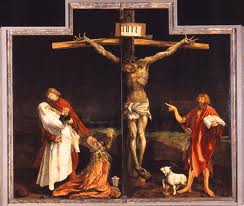 While it is difficult for us today to think of salvation in terms that exclude Jesus’ life, death, or resurrection, there appears to have been some Christian groups that understood God’s plan of salvation apart from these events of Jesus’ earthly existence. In what follows I want to look at three second-century texts that speak of conversion without mentioning Jesus’ life, death, or resurrection.
While it is difficult for us today to think of salvation in terms that exclude Jesus’ life, death, or resurrection, there appears to have been some Christian groups that understood God’s plan of salvation apart from these events of Jesus’ earthly existence. In what follows I want to look at three second-century texts that speak of conversion without mentioning Jesus’ life, death, or resurrection.
Theophilus to Autolycus
Theophilus was a second century bishop of Syria Antioch and an apologist. According to Jerome, his three volume apologetic was “well fitted for the edification of the
church” (Lives, 25, 347–419). At the beginning of the three volumes, Theophilus self identifies as a Christian: “And furthermore, you call me a Christian as if I were bearing an
evil name, I acknowledge that I am a Christian. I bear this name beloved by God in hope of being useful to God” (1.1). Theophilus never mentions the name or the person of Jesus in his three volumes. Nevertheless, he does speak about how God saves people: “For God gave us a law and holy commandments; everyone who performs them can be saved and, attaining to the resurrection, can inherit imperishability (2.27).” There is a hope of resurrection but no discussion about Jesus or his resurrection. Turning to a life of
immortality is not by knowing about Jesus but by “keeping the commandments of God” (2.27). God’s Logos does appear in the three volumes but is not identified with the person of Jesus. Rather, the Logos is innate within the “bowels” of God, who generates (γεννάω)
the Logos with the help of Sophia (2.10). The Logos was generated for the purpose of creating all things and enlightened the prophets about the creation and Torah (2.10; 3.11). Although the Logos is the divine mediator, speaking and acting on behalf of God (2.22),
the Logos’ role in salvation is to reveal God’s commands to the prophets, who in turn reveal them to all humanity (3.11). Again, obedience to these divine commands, not the work or knowledge of Jesus, is the means of salvation (2.27).
Minucius Felix
In another apologetic text, we encounter a debate between a (uneducated) Christian (Caecilius) and a Philosopher (Octavius), where Jesus is mentioned only a couple of times. This first mention of Jesus is in Octavius’ attack on Christians for following a criminal who was crucified: “There are also stories about the objects of their veneration: they are said to be a man who was punished with death as a criminal and the fell wood of his cross, thus providing suitable liturgy for the depraved fiends: they [Christians] worship what they deserve” (9.4). Caecilius’ response to Octavius’ charge reflects the second mention of Jesus: “Now, you ascribe to our religion a criminal and his cross. You are not even remotely correct in supposing that either a criminal could have merited or an earthly creature been able to be though a god” (29.2). He goes on to argue by analogy that it is not unreasonable that Christian recognize the human Jesus as a god because human
“emperors and kings” are upheld as great men and gods. Although Caecilius does not consider emperors and kings to be gods, it nevertheless defends the Christian belief that Jesus is to be venerated as a God. In his defense against Jesus being a criminal, Caecilius argues that the cross is not a symbol of indictment against Jesus because the cross is a symbol of nature and natural order: “…[T]he sign of the cross is fundamental to the order of nature [and] that it forms the framework of your [Octavius] own religion” (29.8). Thus, the conversation about Jesus in Minucius Felix is in relation to the cross, but there is no attempt on the part of Caecilius to present Jesus and the cross as points of salvation for humanity. It might then be surprising that Octavius becomes a Christian after he listens to Caecilius’ lengthy defense of Christianity. In his final words of approbation, Octavius says, “We have both won in a sense: it may sound outrageous, but I claim victory too, for while Octavius is victorious over me, I am triumphant over error” (40.1). Conversion, then, is not recognizing the actual work of Jesus on the cross but realizing that Jesus is not a criminal and that it is completely reasonable for Christians to worship the man Jesus as a god. But, this is just an isolated examples within a larger debate about a defense against anti-Christian accusations concern praxis and ritual. Overall, Octavius is converted from error because Caecilius proved to be the better philosopher––Jesus and the cross are simply one small part of that philosophical defense.
Acts of John
In the Acts of John (AJ), the apostle John travels around Asia Minor healing the afflicted and performing miraculous acts (cc. 18–86; I am excluding from this discussion John’s gospel message [cc. 87–105] and the Metastasis of John [cc. 106–115], because these accounts are significantly different than cc. 18–86). It is through healing and miracles that conversion takes place and conversion is either spoken of in terms of resurrection imagery or is the result of resurrection. Thus, the repeated trope is basically, God/Jesus (they are indistinguishable in the AJ) is a healer and physician who heals/raises the lost who are afflicted so that they might become believers in the one true God. It is remarkable, then, in light of all this language and imagery of suffering and resurrection, that Jesus’ suffering and
resurrection is never mentioned. Furthermore, conversion does not take place because the lost person believes in Jesus’ ministry, death, or resurrection, but rather because the person accepts that it is the one true God/Jesus who heals/raises from the dead. (This is not a eschatological bodily resurrection. Rather, in the AJ, at death a soul is either translated directly to God or is eternally damned––the flesh is merely a substance that disintegrates into nothing.)
The Didache and The Apology of Aristides are two other texts (that I can think of) where Jesus ministry and death is surprisingly absent when it comes to discussions about conversion. It seems, then, that it was not too uncommon for some Christian groups in the second century to not view Jesus earthly ministry, death and resurrection as salvifically significant. For me, this is perhaps one of the most striking and unexpected points of diversity within second-century Christianity.


